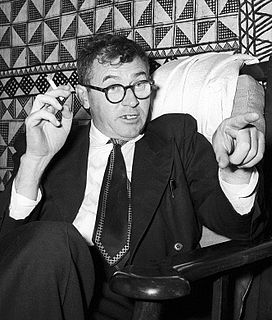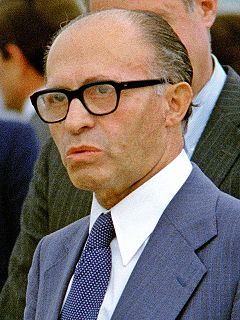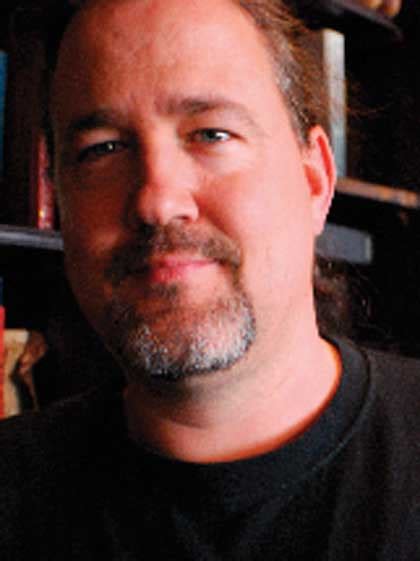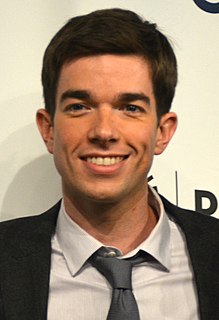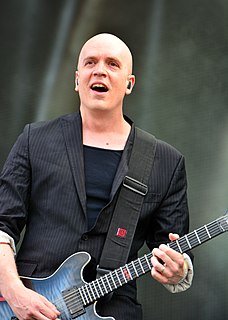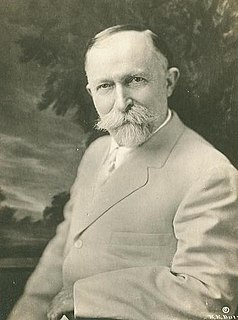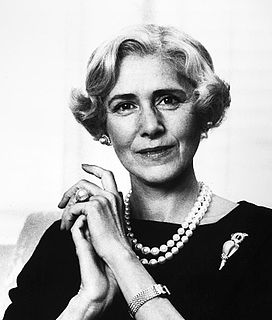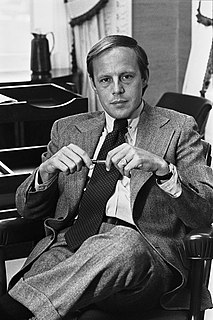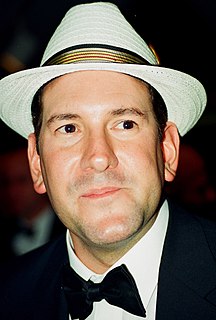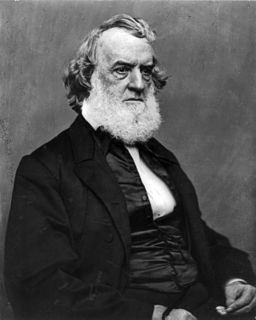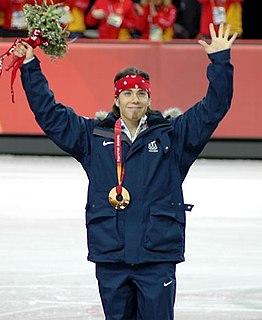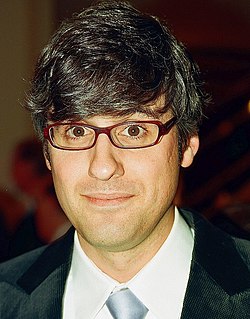Top 440 Avenue Quotes & Sayings - Page 7
Explore popular Avenue quotes.
Last updated on December 22, 2024.
In New Haven, Conn., when I was growing up, there were two sorts of Irish. There were the "drugstore cowboy" micks, who hung around the Elm Street poolroom over Longley's Lunch. And there were the earnest young Irishmen who fought their way up from the Grand Avenue saloonkeeper backgrounds of their fathers, went through Yale Law School, and have now found high place by the preferment of local politics or in the teaching profession.
Sometimes, after I'd gone at the coke like one of those snow plows moving up First Avenue, I'd think my heart was over on the dresser, pounding, and I was watching it. I asked some of the doctors who drifted through the intensive-care unit what kind of effect total cocaine abuse has on the heart and they said things like, "Well, there's not enough valid information...." That kind of answer.
Go to Lord & Taylor on Fifth Avenue, I think it's the eighth floor, and it's just a department called 'Woman.' It's rather devastating. You've never seen such hideous clothes in your entire life. I mean, it's simply appalling. Thank God there are no windows on that floor, because if I were a size 18, I'd throw myself right out the window [after seeing those clothes]. It's insulting what these designers do to these women.
Once when we were fifteen, River (Phoenix) and I went out for this fancy dinner in Manhattan and I ordered soft-shell crabs. He left the restaurant and walked around on Park Avenue, crying. I went out and said, "I love you so much. Why?" He had such a pain that I was eating an animal, that he hadn't impressed on me what was right. I loved him for that. For his dramatic desire that we share every belief, that I be with him all the way
My colleagues and I have gone in the footsteps of our predecessors since the very first day we were called by our people to care for their future. We went any place, we looked for any avenue, we made any effort to bring about negotiations between Israel and its neighbors, negotiations without which peace remains an abstract desire.
High school was the first time I ever saw spoken word poetry. The first place I ever performed a poem was at my school, so in some ways it was the nucleus of how it all started. For me I think high school was a period of trying to figure myself out, and poetry was one of the ways I did that, and was a very helpful avenue to try to do that.
One of the particular things that impressed me was one visitor [of NAACP] - I think it was - it wasn't the Prime Minister of England. We were located then on 14th Street and Fifth Avenue, up several flights of rickety stairs, and he came all the way up those stairs to see Walter [White], largely because of certain kinds of impact, I think, that the Association seemingly was having.
The memories of those who perished in the Warsaw Uprising cry out across the decades, and few are clearer than the memories of those who died to build and defend the Jerusalem Avenue crossing. Those heroes remind us that the West was saved with the blood of patriots; that each generation must rise up and play their part in its defense - and that every foot of ground, and every last inch of civilization, is worth defending with your life.
As a private person, I have a passion for landscape, and I have never seen one improved by a billboard. Where every prospect pleases, man is at his vilest when he erects a billboard. When I retire from Madison Avenue, I am going to start a secret society of masked vigilantes who will travel around the world on silent motor bicycles, chopping down posters at the dark of the moon. How many juries will convict us when we are caught in these acts of beneficent citizenship?
Retailing has become fiercely competitive. Today there are many large global fashion companies who have opened up mono-brand stores in major cities around the world. When I first opened my boutique in New York, in 1985, there were almost no other European luxury brands present with their own stores. Now Fifth Avenue is packed with huge stores from major Italian and French labels.
There are passages and doors And Realms that lie unseen. There are Roads both wide and narrow And no avenue between. Doors Remain closed for those Who in sad vanity yet hide. Yet when Belief is chosen, The key appears inside. What is lived now will soon pass, And what is not will come to Be. The Door Within must open, For one to truly see. Do you see? Believe and enter.
The idea that the universe itself is physically structured around hierarchy was sort of an integration of earlier science and theology that was made by people like Thomas Aquinas, that was assumed doctrinally in that tradition. The Reformation rejected that model of reality and created a highly individualistic metaphysics in the sense that it located everything normative that can be said about reality in human perception, there being, of course, no other avenue of knowing. There is Scripture, there is conscience, there is perception itself.
I don't drink coffee I take tea my dear, I like my toast done on one side. And you can hear it in my accent when I talk, I'm an Englishman in New York. See me walking down Fifth Avenue, a walking cane here at my side. I take it everywhere I walk, I'm an Englishman in New York. I'm an alien I'm a legal alien, I'm an Englishman in New York.
I was new to acting on a stage in a narrative as opposed to acting on a stage as a stand-up. And like everything else it's just like comfort level. The first time I did stand-up I was at a place called the B3 in New York on Third and Avenue B and I not only didn't take the mic out of the stand, but I clutched the stand of the entire time.
One day in '61, I was looking in the Santa Monica phone book for a number, and there it was: Stan Laurel, Ocean Avenue in Santa Monica. I went over there and spent the afternoon with them. And pumped him with questions. I must have driven him crazy. I spent a lot of happy hours at Stan's house on Sundays just talking about comedy.
Outside it's a perfect spring night. We stand on the sidewalk in front of our apartment building, and Henry takes my hand, and I look at him, and I raise our joined hands and Henry twirls me around and soon we're dancing down Belle Plaine Avenue, no music but the sound of cars whoosing by and our own laughter, and the smell of cherry blossoms that fall like snow on the sidewalk as we dance underneath the tress.
Long John would sometimes hold his interviews in the Carnegie Delicatessen, which is the most famous delicatessen in New York up by Carnegie. Let's see, 57th Street, you're down to like 50th Street and 7th Avenue... You'd go in there and everybody would be eating a heart attack on a plate, pastrami, malts, that kind of stuff. But it literally was the place where Woody Allen would go.
... superstitions, which, being unable to defend themselves on fair ground, raise these intangling brambles to cover and protect their weakness. Chased from the open country, these robbers fly into the forest, and lie in wait to break in upon every unguarded avenue of the mind, and overwhelm it with religious fears and prejudices. ... The idea of God, as meaning an infinitely intelligent, wise and good Being, arises from reflecting on the operations of our own mind, and augmenting, without limit, those qualities of goodness and wisdom.
There is a gift available to all of us-the gift of looking to God for direction. Here is an avenue of strength, comfort, and guidance. . . . "Look to God and live." This is the wonderful promise given so often in the scriptures. . . . Our capacity to see and comprehend is increased only in proportion to our willingness to look. God becomes more approachable as we look to him.
My grandfather and his wife came to America at the end of the 19th century from Hungary. Everyone started out on the Lower East Side. They became embourgeoise and would move to the Upper West Side. Then, if they'd make money, they'd move to Park Avenue. Their kids would become artists and move down to the Lower East Side and the Village.
When I hear what we call music, it seems to me that someone is talking. And talking about his feelings, or about his ideas of relationships. But when I hear traffic, the sound of traffic - here on Sixth Avenue, for instance - I don’t have the feeling that anyone is talking. I have the feeling that sound is acting. And I love the activity of sound... I don’t need sound to talk to me.
I don't deal with conflict well, so sometimes things will happen that will make me feel sort of powerless. But instead of being able to actually deal with the problem, I just suck it up - that's the way I was raised. Music, then, becomes my one avenue for letting things go, and when I get the chance, I let it rip. It's like therapy in that way.
The 1960s was probably the first time in history that young people were recognized as a big group of consumers and as a commercial proposition for Madison Avenue. Advertising played a major role in creating the ethos of that era - the idea that, "Here it is, and you can have it now." I know that many kids thought that the ethos of the 1960s was due to their own peculiar virtues, but, in fact, it had a lot to do with the realities of the marketplace and commerce.
Most people, it seems, think that Robinson Crusoe when he landed on his Island had nothing to keep him from starvation or anything else. As a matter of fact he had twelve raft loads of supplies that he took off the wrecked ship. He had as much food and furniture as if he had had a delicatessen store and Fifth Avenue outside his hut.
The breakfast food idea made its appearance in a little third-story room on the corner of 28th Street and Third Avenue, New York City....My cooking facilities were very limited, making it very difficult to prepare cereals. It often occurred to me that it should be possible to purchase cereals at groceries already cooked and ready to eat, and I considered different ways in which this might be done.
The whole idea of image is so confused. On the one hand, Madison Avenue is worried about the image of the players in a tennis tour. On the other hand, sports events are often sponsored by the makers of junk food, beer, and cigarettes. What's the message when an athlete who works at keeping her body fit is sponsored by a sugar-filled snack that does more harm than good?
Summing it Up..."Where's a good place for dinner?" I asked. "There's the Brasserie Lipp on the Avenue St. Germaine," she said, "or La Coupole in Montmartre." "Not La Coupole," I said. "I've been there before. That's the place that's crowded and noisy and smells bad and everybody's rude as hell, isn't it?" "I think you just described France," she said.
My artistic goal was to write something that's one hundred percent real and true to me and to this world. I tried to touch on truths that really connect with people from every avenue of life. Ultimately, when you write from a vantage point of faith, humility and openness to the world around you, people have to respond because those same truths are instilled in them. Honestly, I don't have any agenda other than being sincere, real, and passionate about these songs and the music I make.
Faith is the avenue to salvation. Not intellectual understanding. Not money. Not your works. Just simple faith. How much faith? The faith of a mustard seed, so small you can hardly see it. But if you will put that little faith in the person of Jesus, your life will be changed. He will come with supernatural power into your heart. It can happen to you.
Jack looked out the window as they passed the Mormon temple, just outside the beltway near Connecticut Avenue. A decidedly odd-looking building, it had grandeur with its marble columns and gilt spires. The beliefs represented by that impressive structure seemed curious to Ryan, a lifelong Catholic, but the people who held them were honest and hardworking, and fiercely loyal to their country, because they believed in what America stood for.
I had relatives in New York City who I stayed with. And in those days, the area from Union Square down Fourth Avenue had small bookstores, many of which were run by Spanish immigrants who'd fled after [Francisco] Franco's victory. I spent time in them, and also in the offices of Freie Arbeiter Stimme (Free Worker's Voice) with anarchists. I picked up a lot of material and talked to people, and it became a major influence.
I know all about violence and physical abuse because my first husband used to beat me severely when he got drunk. Once, I can remember coming home from a party and walking up our vast marble staircase at the Fifth Avenue house while he was striking me. I thought, If I just gave him one shove down the staircase I would be rid of him forever.
Who voted for Trump? Who are these people who, as he famously said, would let him shoot someone on Fifth Avenue and still support him? It's people who want too strong a leader, who would do what that leader tells them. Similar to the Europeans following Mussolini and Hitler. There's a streak in humanity that likes that kind of leader. That's Trump's core. Authoritarianism.
Individuals interested in donating can call The Bridge. We do still need food, paper products, money, cleaning supplies - if people could call and coordinate donations. People loved donating clothing to The Bridge - it was an avenue; if they could put their focus on collecting cleaning supplies - toilet paper, food etc. - these items are a priority.
The essence of intercultural education is the acquisition of empathy-the ability to see the world as others see it, and to allow for the possibility that others may see something we have failed to see, or may see it more accurately. The simple purpose of the exchange program...is to erode the culturally rooted mistrust that sets nations against one another. The exchange program is not a panacea but an avenue of hope.
Dear Bill (O'Reilly)...I am concerned that you have been losing touch with reality recently. Did you really say you are more powerful than any politician? That reminds me of the famous story about Squeaky the Chicago Mouse. It seems that Squeaky was floating on his back along the Chicago River one day. Approaching the Michigan Avenue lift bridge, he called out: Raise the bridge! I have an erection!
I wanted to go higher than Rockefeller Center, which was being erected across the street from Saks Fifth Avenue and was going to cut off my view of the sky. . . . Flying got into my soul instantly but the answer as to why must be found somewhere back in the mystic maze of my birth and childhood and the circumstances of my earlier life. Whatever I am is elemental and the beginnings of it all have their roots in Sawdust Road. I might have been born in a hovel, but I determined to travel with the wind and stars.
Lesson number one in trying to develop the ability of independent thought: Understand that EVERYTHING the government says has the potential to be lies and deception. You can believe it's the truth only after you question, exhaust every avenue, and find that their story checks out. If you're a patriot, it's your duty to always question your government anyway, at every turn. A patriot is loyal to his country and his countrymen, not his government.
I took care of my wheel as one would look after a Rolls Royce. If it needed repairs I always brought it to the same shop on Myrtle Avenue run by a negro named Ed Perry. He handled the bike with kid gloves, you might say. He would always see to it that neither front nor back wheel wobbled. Often he would do a job for me without pay, because, as he put it, he never saw a man so in love with his bike as I was.
For me, digital is just another avenue. It doesn't mean that it has to be poor quality or poor content. But, you still run into the same struggles. You can't have full-on language, violence or sexual situations. You can't run rampant with the fact that it's digital. You can't do anything you want. You still have a responsibility to tell a story first, and show what the character is going through first, and then maybe you have a little bit of lee-way to show a more real side of life.
Shot me twice. I want my name, or I'm going to start charging you a fee every time I field something for you. And it's going to be expensive. I'm Park Place. Bud-dy." His red, goat-slitted eyes squinted at me from over his smoked glasses. "You're more like Oriental Avenue right now, dove. What are you on?
The violence stems from injustice, because people feel they have been treated unfairly in the Middle East, whether that means military occupation, starvation under U.N. sanctions, whether it means that they have a dictatorship imposed on them, propped up by the West. This is why people turn to violence, because they have no other avenue left.
All I can say is what you already know: some days are treasure. Not many, but I think in almost every life there are a few. That was one of mine, and when I'm blue -- when life comes down on me and everything looks tawdry and cheap, the way Joyland Avenue did on a rainy day -- I go back to it, if only to remind myself that life isn't always a butcher's game. Sometimes the prizes are real. Sometimes they are precious.
It is so easy to waste our lives: our days, our hours, our minutes. It is so easy to take for granted the pale new growth on an evergreen, the sheen of the limestone on Fifth Avenue, the colour of our kids’ eyes, the way the melody in a symphony rises and falls and disappears and rises again. It is so easy to exist instead of live. Unless you know there is a clock ticking.
Being accused of making money by selling sex in Hollywood, home of the casting couch and the gratuitous nude scene, is so rich with irony that it's a better subject for a comic novel than a column.... On one coast the cops are busting sex workers on Eighth Avenue, dragging them downtown to night court where they pay the fine and go right back to their corner; on another they're charging Heidi Fleiss with pandering in a town in which the verb is an art form.
Extemporaneous speaking should be practised [sic] and cultivated. It is the lawyer's avenue to the public. However able and faithful he may be in other respects, people are slow to bring him business if he cannot make a speech. And yet there is not a more fatal error to young lawyers than relying too much on speech-making. If any one, upon his rare powers of speaking, shall claim an exemption from the drudgery of the law, his case is a failure in advance.
The only people who live in a post-black world are four people who live in a little white house on Pennsylvania Avenue. The idea that America is post-racial or post-black because a man I admire, Barack Obama, is president of the United States, is a joke. And I hope no one will even wonder about this crazy fiction again.
I have a very clear perception what the Internet is in my mind. I'm free. I'm not defined by what they say is the Internet is. Meaning Goldman Sachs, meaning who they invest in for the latest start-up, meaning the latest Buzzfeed, or Salon, or Gawker. Well, Gawker's more independent. But, there's a lot of corporate makeover of the Internet that I have not adapted to, simply put. I'm friends with some of them. When I go to New York I make the 6th Avenue rounds, but I am not a part of that system.
Early evening traffic was beginning to clog the avenue with cars. The sun slanted down behind him. Harry glanced at the drivers of the cars. They seemed unhappy. The world was unhappy. People were in the dark. People were terrified and disappointed. People were caught in traps. People were defensive and frantic. They felt as if their lives were being wasted. And they were right.
I use a lot of specific places in my songs - traditionally, a lot from Minneapolis and St. Paul, where I grew up. Most people, especially when you get into international touring, have not been there. So you say, "Well, isn't it risky to talk about the corner of Franklin Avenue and Lyndale?" If you do it right, someone should say, "God, I know a corner like that." Offering specific details to describe something universal.
Sometimes I feel like 'Avenue Q' or even 'Book of Mormon' might not have happened without 'Urinetown.' 'Urinetown' sort of paved the way, just in terms of what Broadway would accept in its houses. It just blows my mind, the stuff 'Book of Mormon' gets away with. It's way farther across the line than 'Urinetown' ever was.
On the Avenue in front of the White House were several hundred colored people, mostly women and children, weeping and wailing their loss. This crowd did not diminish through the whole of that cold, wet day; they seemed not to know what was to by their fate since their great benefactor was dead, and though strong and brave men wept when I met them, the hopeless grief of those poor colored people affected me more than almost anything else.
My mother and her plans for my future. She had it all worked out. I would attend a nice college, then get a job in advertising. "You'll be one of those smart-looking fellows in their Madison Avenue suits." And I rebelled against [my mother] and her values and her plans for my future at every opportunity.
What signifies, says some one, giving halfpence to beggars? they only lay it out in gin or tobacco. "And why should they be denied such sweeteners of their existence (says Johnson)? it is surely very savage to refuse them every possible avenue to pleasure, reckoned too coarse for our own acceptance. Life is a pill which none of us can bear to swallow without gilding.
The older I get, the more and more I notice I'm like my father. It's funny, because when I was younger I tried to just back away from my father as much as I could, and some of the philosophies, some of the life lessons, some of the beliefs that he had within me are always constantly ongoing, and they're always prevalent in my life, whether it's trying to be every single thing that I can be in my sport or life or relationship or business, whatever avenue I'm pursuing.
My colleagues knew I was writing poems. I never hid it from them. I don't think they ever thought I was cheating on them. So, I think they probably saw it as being rather peculiar, that I was doing that sort of thing, but nobody ever suggested I shouldn't be doing it. I think that would be different on Madison Avenue or Wall Street, where you're really expected to be doing 110 percent for the company.
As the great philosopher George Santayana would have said, 'those who cannot remember the past . . . should simply read Jan Van Meter's Tippecanoe and Tyler Too.' Van Meter's greatest hits collection of slogans is the catchiest ever retelling of American history. It's like the greatest minds of Madison Avenue sat down to write a history book. They don't make sound bites like they used to!
